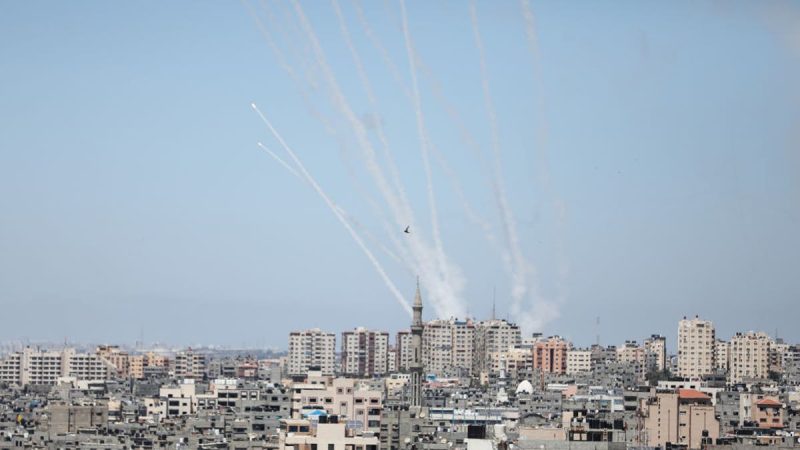The recent escalation of conflict in the Middle East has once again brought the long-standing tensions between Israel and Hamas to the forefront of international attention. The latest developments have seen Hamas launching a significant rocket barrage into Israel from Rafah, sounding alarms in Tel Aviv and raising concerns about the region’s stability.
The attack, which took place in the early hours of the morning, resulted in dozens of rockets being fired towards various locations in Israel. The city of Tel Aviv, a key economic and cultural hub in the region, was among the areas targeted, with air raid sirens blaring and residents urged to seek shelter immediately. The rocket barrage marked a significant escalation in hostilities and posed a direct threat to civilian populations.
In response to the attack, the Israeli military swiftly launched a series of airstrikes targeting Hamas positions in the Gaza Strip. These retaliatory measures aim to degrade Hamas’s ability to carry out further attacks and serve as a warning against future provocations. The cycle of violence between Israel and Hamas has long been characterized by such tit-for-tat exchanges, with civilians on both sides bearing the brunt of the conflict.
The rocket barrage from Rafah into Israel underscores the complex dynamics at play in the Israeli-Palestinian conflict. Hamas, designated as a terrorist organization by much of the international community, continues to challenge Israel’s security and sovereignty through such provocative acts. The group’s use of indiscriminate rocket fire not only violates international humanitarian law but also exacerbates tensions in an already volatile region.
The situation in the Middle East remains precarious, with the potential for further escalation and humanitarian fallout looming large. The international community, including key stakeholders such as the United Nations and regional powers, must work towards de-escalating tensions and finding a lasting solution to the Israeli-Palestinian conflict. Only through dialogue, diplomacy, and a commitment to peace can the cycle of violence be broken and the prospects for a secure and prosperous future for all parties be realized.




























